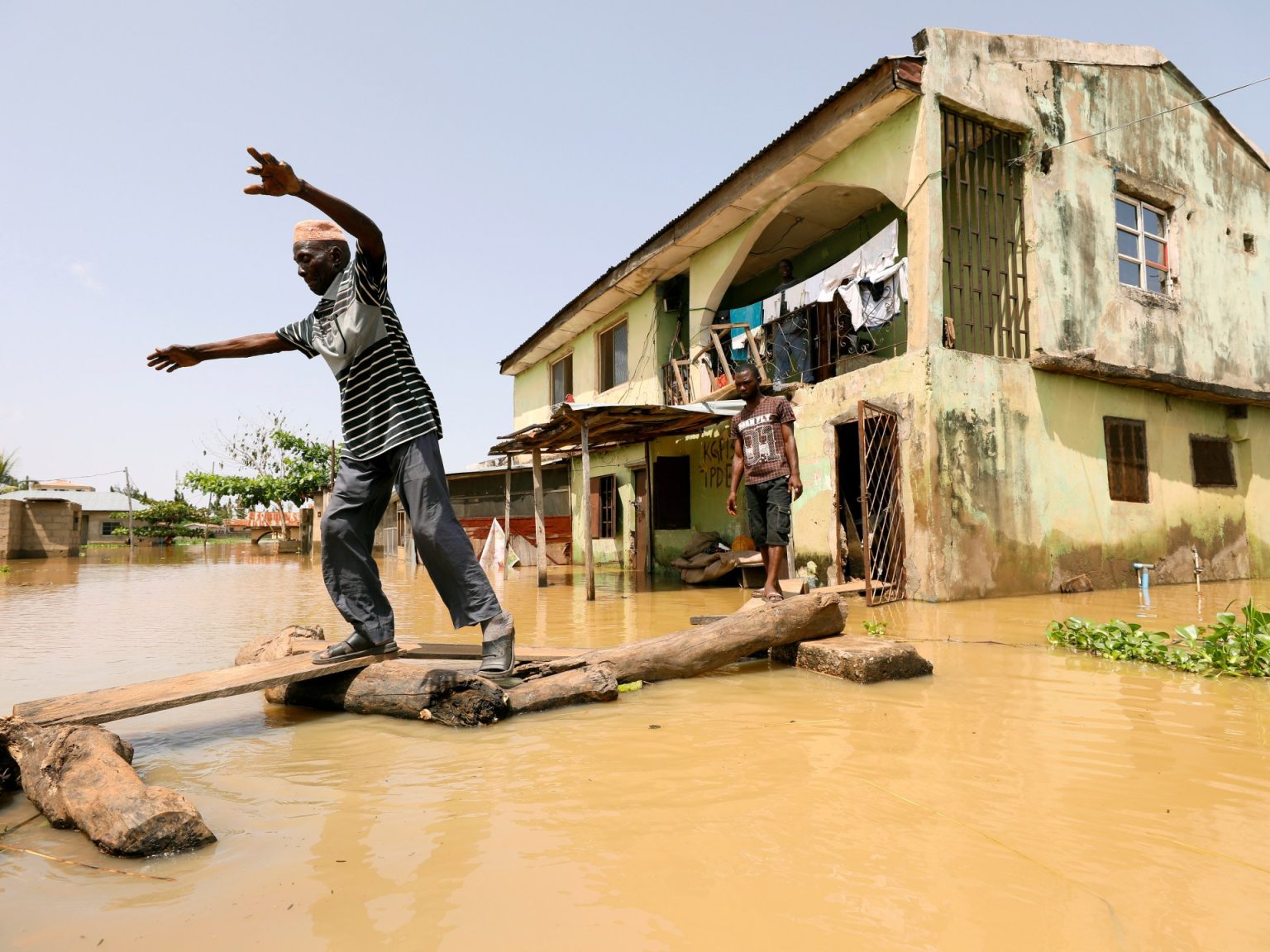In Ogba-Ojibo, a small village in Nigeria, 27-year-old Ako Prince Omali is monitoring the rising water levels of the Niger River due to flooding. Flooding is a common occurrence in Kogi State, where many villagers rely on fishing and farming for their livelihoods. Nigeria has a high number of people vulnerable to flooding, with 15 million people at risk. In 2022, 470,000 people in Kogi were affected by flooding, and even more are at risk this year following the collapse of a dam in Borno State.
For residents like Omali, who rely on farming for sustenance, flooding can have devastating effects on crops and income. Omali and his family have experienced significant losses due to flooding, with their harvests varying each year depending on the severity of the floods. Aid agencies provide emergency food supplies during floods, but new innovative programs are emerging to help communities prepare for flooding in advance. Initiatives like GiveDirectly’s cash aid program aim to provide financial assistance to flood-prone areas before disaster strikes.
Using artificial intelligence tools, organizations like Google and GiveDirectly are working to improve disaster response efforts in flood-prone regions. AI models can help predict and identify areas most at risk of flooding, allowing for timely interventions and early actions. By providing anticipatory cash payments to vulnerable communities, aid organizations can help residents prepare for floods by stocking up on essential goods before disaster strikes. These proactive measures can help mitigate the devastating impacts of flooding and improve overall resilience.
The flooding situation in Kogi is expected to worsen in the coming weeks, prompting organizations like GiveDirectly to ramp up efforts to support communities at risk. By leveraging AI models and forecast data, aid agencies can identify flood-prone areas and distribute cash aid to residents before disaster strikes. This proactive approach can help residents like Omali prepare for floods and minimize the impact of natural disasters on their livelihoods.
For residents of Ogba-Ojibo, relocating permanently is not a viable option, as they rely on the land for farming and sustenance. While the floods pose a significant challenge, many residents are unwilling to leave their homes and the land that sustains them. Initiatives like GiveDirectly’s cash aid program provide much-needed support to residents during times of crisis, helping them to rebuild and recover from the impacts of flooding. By combining AI technology with humanitarian aid efforts, organizations are working to build resilience and improve disaster response in flood-prone regions like Kogi State.













